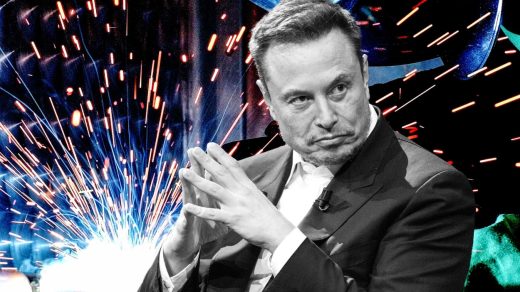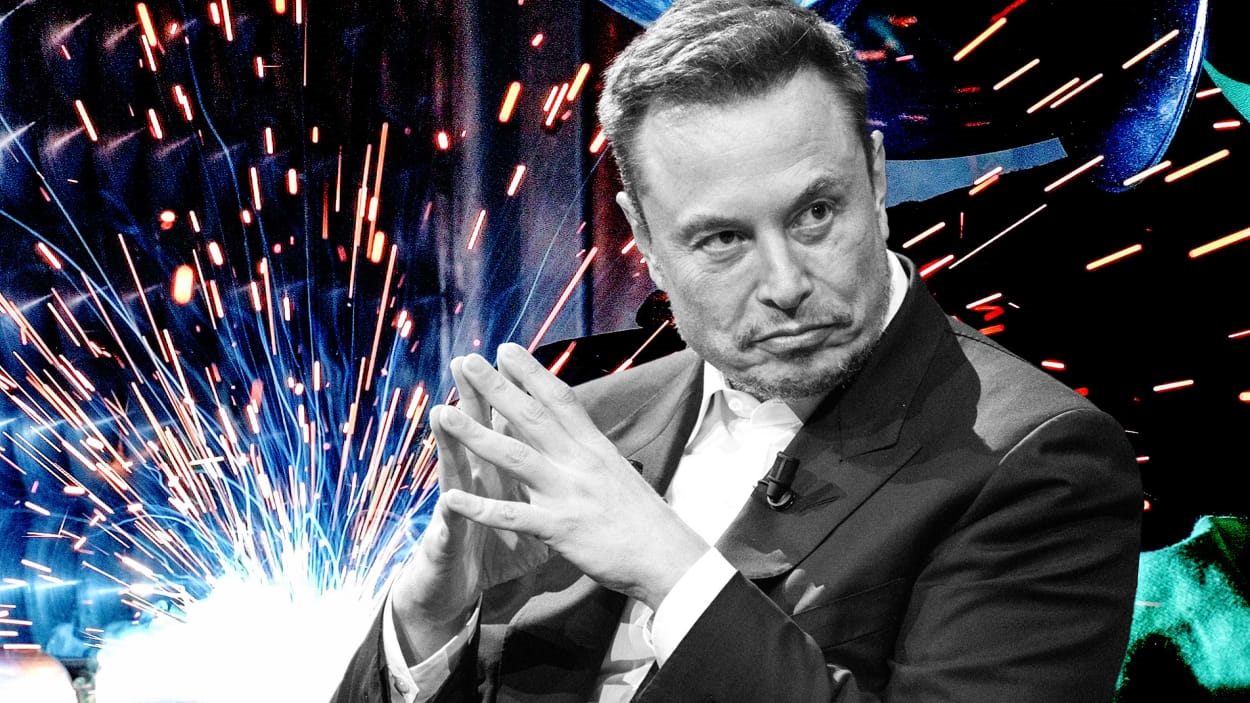Is Tesla trying to buy U.S. Steel? The rumor mill churns on Elon Musk’s next “X”
The world’s first billion-dollar company, U.S. Steel, is back up for sale after the once illustrious and powerful corporation rejected a takeover bid on Sunday from a rival steelmaker. U.S. Steel holds a spot in the American psyche as a gigantic corporation that helped America build railroads and skyscrapers, and probably had too much influence over politics and the economy. But it isn’t really a hot Wall Street pick today, and the buyout proposal it just shot down was for just $7.3 billion. Notwithstanding, the company now claims it’s entertaining “several unsolicited offers.”
Who would want to buy U.S. Steel? The most obvious answer is names you likely haven’t heard of before. (Esmark Inc., anybody?) But another answer, according to a theory that started circulating online, is Elon Musk.
We should just get this out of the way now: U.S. Steel trades under the single-letter ticker symbol of “X,” putting among an exclusive club of such public companies, the others including also-famous brands such as Ford (which uses “F”), AT&T (“T”), Citigroup (“C”), and Visa (“V”). To restate the obvious by now, Musk has confessed to having a “fondness for the letter X.” Last year he declared, “Buying Twitter is an accelerant to creating X, the everything app.” This April a federal filing revealed Twitter Inc. had been merged into a company known simply as X Corp. Musk’s space company is SpaceX, and he and his ex Grimes have a kid legally named X Æ A-Xii. Outside of Twitter’s X rebrand, Musk has also owned the website X.com since at least 1999, from back when his vision was making X into the world’s first “everything bank.” X.com eventually merged with PayPal, where Musk became CEO, but got ousted after insisting they rechristen the company as—you guessed it—X.
The origins of his X obsession are anyone’s guess, though whatever theory you have in mind might benefit from being made at least four times more childish. Three of Musk’s other favored characters are S, 3, and Y—a trio that allows Tesla’s four vehicle models to be S, 3, X, Y, which of course looks like “SEXY.” In fact, it would have spelled “SEXY” if Ford hadn’t sued to stop Tesla from using an E. (Ford owns E as a model name, because the automaker thinks it sounds too close to “Model T.”) At the time, Musk griped that Ford was “killing SEX.”
It’s clear Musk doesn’t like others dictating what he can and can’t do with his favorite letters. Would he therefore purchase U.S. Steel to control “X” on the New York Stock Exchange, perhaps one day offering a publicly traded vessel that he could Frankenstein into an “everything” conglomerate that manufactures S, 3, X, and Y vehicles, fires big rockets into space, puts satellites in orbit, and bores tunnels underground?
Messages sent from Fast Company to Musk through Tesla did not get a response, but for Elon Musk’s online fans, the working theory seems to be yes, he would. They’ve been excited since Sunday by the prospect of him acquiring a massive steel company.
However, even more rational observers with knowledge of the steel industry are arguing the idea isn’t completely outlandish.
As social media user and entrepreneur Robert Sterling notes, U.S. Steel is actually one of America’s only suppliers of the metals found inside EV motors and charging stations. That type of steel isn’t easy to acquire, since it requires specialized equipment and know-how, and Tesla has been in the market recently for more of it.
Beyond benefits to Tesla, Musk owning U.S. Steel would provide a valuable source of raw materials that his other X-themed or -adjacent companies could tap into, adding another layer of vertical integration to a set of businesses that’s already seeing other unusual signs of hybridization. It would offer endless supplies for the Gigafactory in Austin, Starlink satellites to beam the internet all around the world, Boring tunnels in every metropolis, maybe even the materials to build his first Martian city—enough, frankly, to make U.S. Steel’s original robber barons Andrew Carnegie and J.P. Morgan feel like small business owners.
(8)



